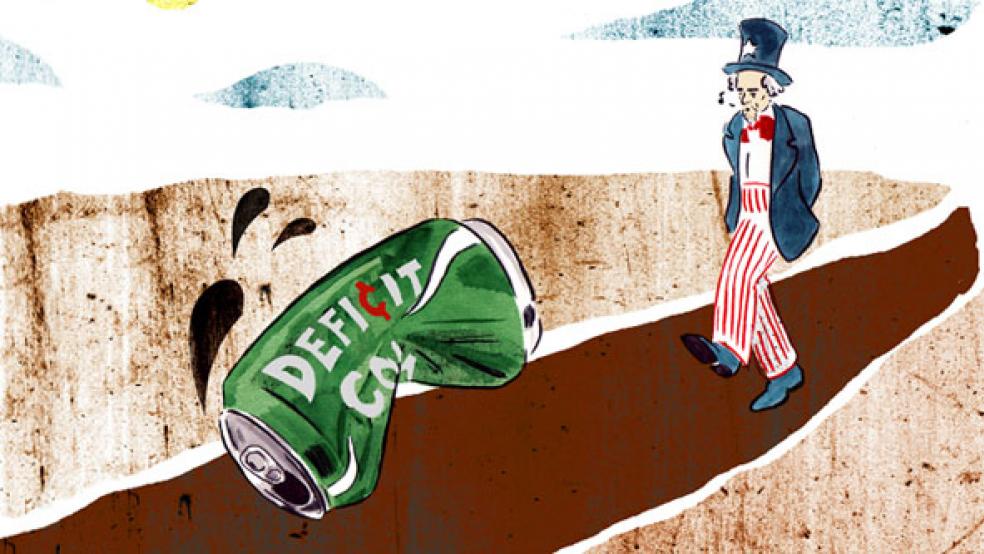This opinion piece was first published in The Washington Post
For too many years, actually decades, I have been railing that our unsustainable long-term debts and structural deficits are a transcendent threat to our economic and political future. More recently, I, like many others, have become concerned about the threat of a financial crisis generated by our inability to agree on raising the debt limit.
The possibility of a significant and sudden increase in interest rates, a precipitous fall in the dollar, and a devastating effect on housing could completely derail our already fragile and jobless economic recovery and make our long-term fiscal situation worse. Friday’s employment report should put to rest any notion that we can tempt fate by not raising the debt limit.
In recent months, it appeared that negotiations between the Obama administration and congressional Republicans were focused on getting past the short-term hurdle and avoiding serious action on our long-term problems. But if news reports are correct, President Obama and House Speaker John Boehner may be ready to address both, and they deserve significant credit for putting Social Security, Medicare and, yes, revenue on the table.
We simply can’t solve our structural deficits if we ignore entitlements and revenue.
With the doubling of our senior population, entitlements will account for 100 percent of the long-term growth in federal non-interest spending as a percentage of gross domestic product. Any credible fiscal plan must include their reform. I believe we must secure these programs for the vulnerable by progressively reducing benefits for those of us who are well-off. The alternative is a safety net that eventually gets shredded by soaring costs and the brutal politics of a serious financial crisis.
As for additional revenue, I don’t see a reasonable solution to our long-term problem without it. To stabilize the debt as a percentage of gross domestic product without adding any new sources of revenue, spending would have to be cut 36 percent across the board. If we take Social Security and defense off the table, as many suggest, spending elsewhere must be cut 66 percent. Cuts of this magnitude would be draconian and politically impossible.
To have the biggest short- and long-term impact on our economy, both sides should push for a grand fiscal bargain as soon as possible.
The immediate benefits of a serious bipartisan deficit-reduction plan would be confidence and jobs. The United States is still struggling to create a meaningful number of jobs. Confidence in our future is crucial to job creation and is seriously lacking in several key quarters, including foreign lenders on whom we have become dangerously dependent; consumers whose big-ticket purchases are being reduced or postponed; and businesses and banks that have trillions of dollars sitting idle. Much of this capital would be put to work sooner if lenders, investors and business leaders believed the federal government was on a more sustainable fiscal path and that another financial crisis is no longer around the corner.
Over the long term, when the government borrows excessively, it takes capital out of the financial markets and inevitably raises the cost of investment for businesses. Furthermore, if the United States is to become an investment and innovation society that creates jobs, the federal government must have the resources to devote to critical areas such as research and development; education; and infrastructure. How will we make these investments when interest costs, entitlements and defense are projected to make huge claims on future resources?
Within 25 years, experts estimate, interest costs will be three times our current combined federal investment in R&D, education and infrastructure. The problem worsens as interest rates rise: a sustained 1 percent increase in interest rates would add $1.3 trillion to the debt over 10 years. By avoiding growing interest bills, the federal government will have more resources to invest in areas that boost long-term economic growth, competitiveness and job creation.
Rarely are the political interests of both parties as aligned as they are today. No elected officials want the first U.S. credit default to happen on their watch. And after 35 years on Wall Street, one thing I know is that markets are unpredictable — they often don’t signal which direction they’re headed until it’s too late to get out of the way.
Some wonder how you can improve our fiscal outlook now without damaging such a fragile recovery. The answer is that we can lock in a long-term plan now but delay its implementation until the economy recovers. Immediate spending cuts and revenue increases could be counterproductive in the context of today’s grim employment outlook, but we need to reach a grand bargain fast to prove to the world that America is back in business.
The writer is founder and chairman of the Peter G. Peterson Foundation and owner of The Fiscal Times.
Read more about the debt ceiling at the Fiscal Times:
Obama’s Debt Ceiling Proposal Sparks Liberal Fury
Three Reasons Conservatives Must Cut a Debt Limit Deal
Obama May Have to Break the Law if Debt Talks Collapse






